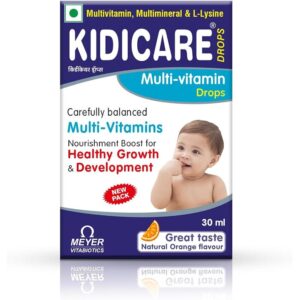L-LYSINE + MULTIMINERALS + MULTIVITAMIN
L-Lysine: L-Lysine is an essential amino acid that is commonly used as a dietary supplement. It is primarily used for the treatment and prevention of cold sores caused by the herpes simplex virus. L-Lysine is also known to have antiviral properties and is believed to help support the immune system.
The mechanism of action of L-Lysine is not fully understood, but it is thought to work by inhibiting the replication of the herpes simplex virus. L-Lysine competes with another amino acid, arginine, for absorption into cells. Since the herpes simplex virus requires arginine for replication, taking L-Lysine can effectively reduce the availability of arginine and hinder the virus’s ability to reproduce.
The recommended dose of L-Lysine for preventing cold sores in adults is 1,000 to 3,000 mg per day. For treating an active outbreak, a higher dose of 3,000 to 9,000 mg per day may be recommended. It is important to consult with a healthcare professional to determine the appropriate dose for individual needs.
L-Lysine is generally considered safe for most people when taken orally as a supplement. However, some individuals may experience side effects such as nausea, abdominal pain, diarrhea, and allergic reactions. High doses of L-Lysine may also cause an increase in cholesterol levels. People with kidney or liver disease, as well as pregnant or breastfeeding women, should exercise caution and consult with their healthcare provider before taking L-Lysine.
Overall, L-Lysine is a well-tolerated supplement that can be beneficial for preventing and treating cold sores caused by the herpes simplex virus. It is important to follow the recommended dosage and consult a healthcare professional for personalized advice.
Multiminerals: Multiminerals are a type of dietary supplement that contains a combination of essential minerals necessary for the proper functioning of the body. These minerals include calcium, iron, magnesium, zinc, copper, manganese, chromium, and selenium.
The main use of multiminerals is to prevent or treat mineral deficiencies that may occur as a result of poor diet, certain medical conditions, or pregnancy. They are commonly used by individuals who have dietary restrictions, such as vegans or people with certain food allergies, as well as by individuals with increased mineral requirements, such as pregnant women or athletes.
The mechanism of action of multiminerals varies depending on the specific mineral. Generally, minerals are essential for various physiological functions in the body, including bone health, nerve transmission, muscle contraction, enzyme activation, and immune function. Multiminerals help ensure that the body has an adequate supply of these essential minerals to maintain proper health and functioning.
The dose of multiminerals can vary depending on the specific product and individual needs. It is important to follow the instructions on the product packaging or consult with a healthcare professional for the appropriate dosage.
While multiminerals are generally considered safe, they may cause certain side effects in some individuals. These side effects can include gastrointestinal symptoms such as nausea, vomiting, diarrhea, or constipation. Some individuals may also experience allergic reactions to specific minerals present in the supplement. Additionally, excessive intake of certain minerals, such as iron or calcium, can lead to toxicity, so it is important to adhere to recommended dosage guidelines.
It is always recommended to talk to a healthcare professional before starting any new dietary supplement, including multiminerals, to ensure it is safe and appropriate for individual needs.
Multivitamin: Multivitamins are dietary supplements that contain a combination of various vitamins and minerals essential for the body’s normal functioning. They are typically used to prevent or treat vitamin deficiencies in individuals who may have inadequate nutrient intake through their diet, have malabsorption issues, or have increased nutritional needs, such as during pregnancy or illness.
The mechanism of action of multivitamins varies depending on the specific vitamins and minerals included in the formulation. Each vitamin and mineral has its own role in the body, such as helping with the conversion of food into energy, supporting immune function, promoting healthy skin and hair, and participating in various biochemical reactions.
The recommended dose of multivitamins depends on the individual’s age, gender, health status, and specific nutrient needs. Generally, one tablet or capsule is taken daily with a meal or as directed by a healthcare professional.
Although multivitamins are generally considered safe when taken as recommended, they can still cause side effects in some individuals. Common side effects reported include nausea, vomiting, diarrhea, stomach discomfort, and a temporary yellowish discoloration of the urine. These side effects are usually mild and typically resolve on their own.
It’s important to note that while multivitamins can be beneficial in certain cases, they should not replace a balanced diet. It is always best to obtain nutrients from whole foods whenever possible. If you have specific concerns about your nutrient intake or whether a multivitamin is appropriate for you, it is advisable to consult with a healthcare professional.

